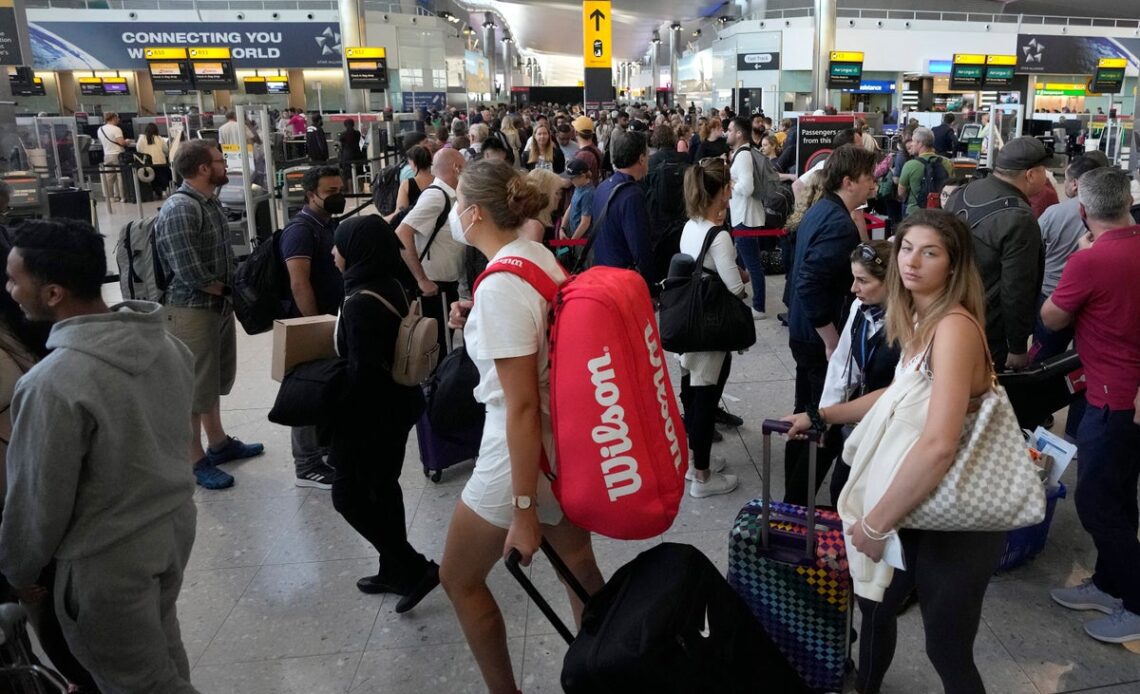Britain is braced for a summer of “massive disruption” after British Airways workers voted in favour of strike action on the same day that railways were all but shut down by industrial action.
Ground staff at the carrier’s Heathrow hub overwhelmingly backed a walkout in their fight to reverse pay cuts imposed during the Covid pandemic.
An estimated 700 workers will be involved in the strike, which the GMB Union said was “likely to be during the peak summer holiday period”.
“Holidaymakers face massive disruption thanks to the pig-headedness of British Airways,” it said.
Downing Street said further strikes will “only add to the misery being faced by passengers at airports”. A spokesman promised “to look at what contingency measures BA could put in place” to get around the action.
It comes as passengers faced a second full day of strikes by transport workers, while Britain’s biggest education union, the National Education Union (NEU), and junior doctors have also warned they may pursue industrial action later this year or next if the government fails to meet demands for improved pay and conditions.
Ministers and business leaders are now weighing the potential fallout from a summer of discontent if workers across public and private services strike and win better pay offers.
The government is set to push through laws that allow companies to replace strikers’ labour with agency workers as soon as Monday. However, using casual labour to replace striking workers is unlikely to succeed except against the lowest-paid or less skilled workers.
The deepening cost of living crisis could provoke further industrial disputes in the coming months, said Yael Selfin, chief economist at accountancy firm KPMG. If this leads to higher pay offers it would “worry” policymakers who set interest rates at the central bank, she added.
“The risk of a recession has increased,” Ms Selfin said, adding that higher energy costs and supply chain disruption due to Russia’s war in Ukraine had piled pressure on UK households.
Strike action which triggers higher pay settlements “is going to worry the Bank of England” she said.
“It’s likely to increase costs and see interest rates going up further and faster. That would spell even deeper weakening, as higher interest rates slow the economy,” Ms Selfin said.
Rocketing prices of basic goods and services drove inflation to a fresh 40-year high of 9.1 per cent in the 12 months to May, according to official…
Click Here to Read the Full Original Article at The Independent Travel…
